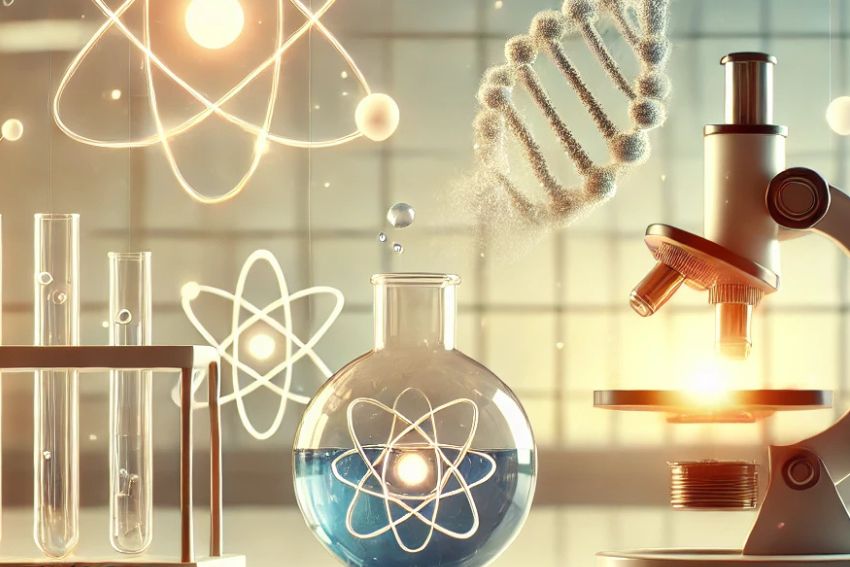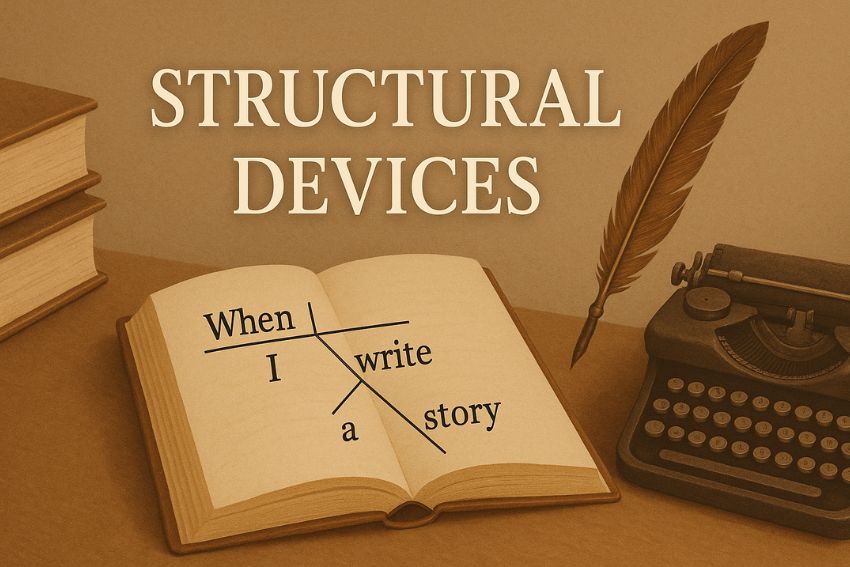Did you know that GCSE Science is one of the most important subjects for students in the UK? Science shapes our understanding of the world, from how our bodies work to the technology we use every day. Whether you dream of becoming a doctor, an engineer, or just want to pass your exams with confidence, GCSE Science is a subject that will always be relevant.
In this blog, we’ll explore everything you need to know about GCSE Science. We’ll break down the key topics, share the best revision techniques, and highlight common mistakes to avoid. You’ll also discover useful resources, including GCSE Science past papers and revision tools, to help you prepare better.
Overview of the GCSE Science Curriculum
GCSE Science is divided into three key subjects: Biology, Chemistry, and Physics. Each subject explores different aspects of the natural world and helps you develop essential scientific skills. Whether you take Combined Science (two GCSEs) or Separate Science (three GCSEs), understanding the structure from the start is important for better preparation.
What is Combined Science GCSE?
Combined Science covers all three sciences – Biology, Chemistry, and Physics , but awards students two GCSEs instead of three. The content is slightly less detailed than in Triple Science, making it a great choice for students who want a balanced approach without the extra subject load.
Most students in the UK take Combined Science GCSE , as it allows them to keep their options open without needing to specialise too early. While it provides a strong science foundation, it still allows progression to A Level sciences for those who perform well.
What is Triple Science GCSE?
Triple Science, also called Separate Science, treats Biology, Chemistry, and Physics as three individual GCSEs. Students cover more content in greater depth, making it the best option for those interested in pursuing science at A Level or university.
Since Triple Science involves extra topics and exams, it requires more study time and commitment. However, it can provide an advantage for students who plan to take STEM (Science, Technology, Engineering, and Maths) subjects in the future.

Science GCSE Assessment and Exams
GCSE Science is assessed through written exams and practical assessments:
Written Exams – Typically, there are six exam papers (two for each science). These include a mix of multiple-choice, structured, closed short-answer, and open-response questions.
Required Practical Work – Students complete a set number of required practicals, which are tested in the written exams rather than through coursework. These experiments help students apply their knowledge to real-world scientific investigations.
Breakdown of Core GCSE Science Subjects
As you already know, GCSE Science is divided into three key subjects. Each subject has its own challenges, but with the right approach, you can master the content and do well in exams. Let’s go through them and explore important topics, common struggles, and revision strategies.
Biology
GCSE Biology is the study of living organisms, ecosystems, and the human body. It helps students understand everything from how cells function to how species interact within ecosystems. The main topics in this subject are :
- Cell Biology – The structure and function of cells, including mitosis and the role of organelles.
- Organisation – How cells form tissues, organs, and organ systems.
- Infection and Response – The immune system, pathogens, and how vaccines work.
- Bioenergetics – Photosynthesis and respiration.
- Ecology – Ecosystems, biodiversity, and food chains.
Common Struggles and How to Overcome Them
Remembering Key Processes: Many students struggle to memorise complex processes like respiration and photosynthesis.
Solution: Use diagrams, flowcharts, and flashcards to break down each stage.
Applying Knowledge to Exam Questions: Biology exams often require students to explain and justify their answers.
Solution: Practise with GCSE Science past papers to improve exam technique.
Understanding Genetics: Inheritance, DNA, and genetic engineering can be difficult.
Solution: Watch video tutorials and try explaining concepts in your own words.
Chemistry
GCSE Chemistry focuses on the structure of atoms, chemical reactions, and the properties of materials. It explains everything from why metals conduct electricity to how acids and bases react. Key areas for this subject are :
- Atomic Structure and Bonding – The periodic table, types of bonding, and electron configuration.
- Chemical Reactions – Acids, bases, neutralisation, and reaction rates.
- Quantitative Chemistry – Calculating moles, concentration, and yields.
- Organic Chemistry – Hydrocarbons, polymers, and crude oil fractions.
Hardest Concepts and Solutions
Balancing Chemical Equations: Many students find balancing equations confusing.
Solution: Practise step-by-step, starting with simple equations before moving to complex ones.
Moles and Stoichiometry: Understanding the mole concept can be tricky.
Solution: Use real-world analogies (e.g., recipes) to grasp ratios.
Organic Chemistry Naming: Memorising functional groups and reactions can be overwhelming.
Solution: Create mnemonics and summary tables for quick revision.
Physics
GCSE Physics explains the fundamental laws of nature, from forces and motion to energy and electricity. Many students find it the most challenging of the three sciences, but with the right approach, it can be mastered. Important topics are :
- Forces and Motion – Newton’s laws, velocity, acceleration, and momentum.
- Energy and Electricity – Energy transfers, circuits, and power calculations.
- Waves and Radiation – Light, sound, electromagnetic waves, and nuclear radiation.
- Space Physics (Triple Science Only) – The life cycle of stars, the solar system, and the Big Bang theory.
Difficult Areas and Solutions
Mathematical Application: Physics involves a lot of equations and calculations.
Solution: Make a formula sheet and practise rearranging equations.
Electric Circuits and Resistance: Many students mix up current, voltage, and resistance.
Solution: Use GCSE Science revision videos and interactive circuit simulators to visualise concepts.
Interpreting Graphs and Data: Physics exams often include graph-based questions.
Solution: Practise reading and plotting graphs to improve analysis skills.
5 Easy Tips for GCSE Science Revision
Success in GCSE Science depends not only on understanding the subject but also on using the right revision techniques. Many students make the mistake of passively reading notes, but active revision methods can help retain information more effectively and improve exam performance. Here are the most effective strategies for GCSE Science revision.

- Active Recall – Instead of just reading notes, test yourself by recalling key facts from memory. Cover definitions and attempt to recall them, or write everything you know about a topic before checking what you missed.
- Practising with Past Papers – Working through GCSE Science past papers helps familiarise students with exam formats, improve time management, and understand how to phrase answers for full marks.
- Mind Maps & Diagrams – Creating visual summaries of complex topics, such as the carbon cycle, atomic bonding, or energy transfers, makes information easier to understand and recall.
- Flashcards – Memorise definitions, equations, and key facts using flashcards. Apps like Quizlet or Anki can be helpful for spaced repetition.
- Teaching Others – Explaining concepts to a friend, family member, or even aloud to yourself is a powerful way to reinforce knowledge and identify gaps in understanding.
Using these tips can make your revision easier and more enjoyable. Next, let’s look at how to approach GCSE Science exam questions successfully.
GCSE Science Questions and Exam Techniques
Understanding how to approach exam questions is just as important as knowing the subject content. GCSE Science exams include a mix of multiple-choice, short-answer, long-answer, calculation, and practical-based questions. Using the right techniques can help maximise marks and improve confidence during the exam.
| Question Type | How to Approach | Key Tips |
| Multiple-Choice Questions | Read carefully, eliminate incorrect options. | Look for keywords, avoid misleading answers. |
| Short-Answer Questions | Be concise, use key terminology. | Answer exactly what is asked, avoid vague responses. |
| Long-Answer (6-Mark) Questions | Structure response clearly, use scientific terms. | Include at least six key points, explain step by step. |
| Calculation Questions | Show all working, check units. | Use formula triangles, double-check accuracy. |
| Practical & Data Interpretation | Analyse data carefully, describe trends accurately. | Mention control variables, use precise scientific language. |
Using these will help you apply your knowledge properly and achieve higher marks. Let’s look at GCSE Science past papers and how they can help with exam preparation.
GCSE Science Past Papers
Now that you know how to approach different question types, let’s explore how GCSE Science past papers can help you practise and refine these techniques. past papers give you a clear idea of what to expect in the exam, help you manage your time better, and show you which topics need more focus.
Where can you find GCSE Science past papers? Official exam board websites, such as : AQA,OCR, WJEC and Edexcel, provide free access to past papers, making them essential for revision.
Past Papers by Subject
✔ GCSE Biology Past Papers – Covering all key topics, from cells to ecosystems.
✔ GCSE Chemistry Past Papers – Focusing on atomic structure, bonding, and reactions.
✔ GCSE Physics Past Papers – Including calculations, forces, energy, and electricity.
✔ GCSE Combined Science Past Papers – Covering all three sciences but with a combined grading system.
Best Resources for GCSE Science
Past papers are a great way to prepare, but using the right study resources can make revision even more effective. There are plenty of online tools, websites, and apps designed to help students understand GCSE Science topics and improve exam performance. Here are some of the best resources available:
CGP GCSE Science Revision Guides: These guides offer clear explanations, exam tips, and practice questions to reinforce your understanding.
Oxford Revise Science Books: Known for their in-depth content and exam-style practice questions, these books are highly recommended by educators.
BBC Bitesize: This platform provides free revision notes, quizzes, and videos tailored to the GCSE Science curriculum.
National STEM Learning Centre: Free science resources, activities, and study guides.
Cognito: It’s a Youtube channel and it has engaging animations to simplify complex topics.
What Can I Do With GCSE Science?
GCSE Science opens doors to a wide range of careers, whether you continue with A Levels or take a different route. Below is a quick guide to some career options based on different science subjects.
| Science Subject | Potential Career Paths |
| Biology | Medicine, Nursing, Veterinary Science, Environmental Science, Biotechnology, Sports Science |
| Chemistry | Pharmacy, Chemical Engineering, Forensic Science, Food Science, Cosmetic Science |
| Physics | Engineering, Computer Science, Data Analysis, Renewable Energy, Space Science |
| General Science (Combined Science) | Teaching, Science Journalism, Healthcare, Science Communication, Business & Finance (with analytical skills) |
Even if you don’t pursue a science-related career, the problem-solving, critical thinking, and analytical skills you develop in GCSE Science are valuable in many industries. Whether you choose A Levels, vocational courses, or apprenticeships, a solid science background can set you up for success.
Conclusion
GCSE Science may seem challenging, but with the right approach, it becomes much easier to handle. Instead of cramming at the last minute, focus on small, consistent revision sessions. Breaking topics into manageable chunks, using effective revision techniques, and practising with GCSE Science past papers will help you feel more prepared when exam day arrives.
Remember, success isn’t just about memorising facts – it’s about understanding concepts, applying scientific terminology, and knowing how to structure your answers. The more you engage with the material, the more confident you’ll feel tackling different types of exam questions.
If you’re seeking GCSE Science online tutors, an expert tutor can provide the personalised support you need. Good Luck!
FAQ’s
Is GCSE Science hard to pass?
GCSE Science can be challenging, but with consistent revision and practice, most students can pass. Understanding key topics, using past papers, and applying exam techniques make a big difference.
Do you have to retake GCSE Science if you fail?
It depends on your next steps. If you plan to take A Level Science or a STEM-related course, you’ll likely need to resit if you don’t pass. Many colleges require at least a grade 4, but if Science isn’t essential for your future plans, a retake may not be necessary. Schools and online courses offer resit options if needed.
How does GCSE Science work?
GCSE Science is split into Combined Science and Triple Science, each with different grading and content depth.
Triple Science (Separate Science) gives students three separate GCSEs in Biology, Chemistry, and Physics, each graded 9 to 1.
Combined Science covers Biology, Chemistry, and Physics but awards two GCSEs with a 9-9 to 1-1 grading scale (e.g. 9-9 is the highest, 4-4 is a standard pass, and 1-1 is the lowest).
What is the hardest science for GCSE?
The hardest GCSE Science subject depends on the student, but many find Physics the most challenging due to its complex formulas, calculations, and abstract concepts like forces and electricity. Chemistry can also be difficult because of chemical equations, bonding, and mole calculations.
Which GCSE science has the most content?
Biology is generally considered to have the most content in GCSE Science. It covers a wide range of topics, including cell biology, human anatomy, ecosystems, genetics, and disease. Biology requires strong memorisation skills due to the number of processes, key terms, and concepts students need to learn.








